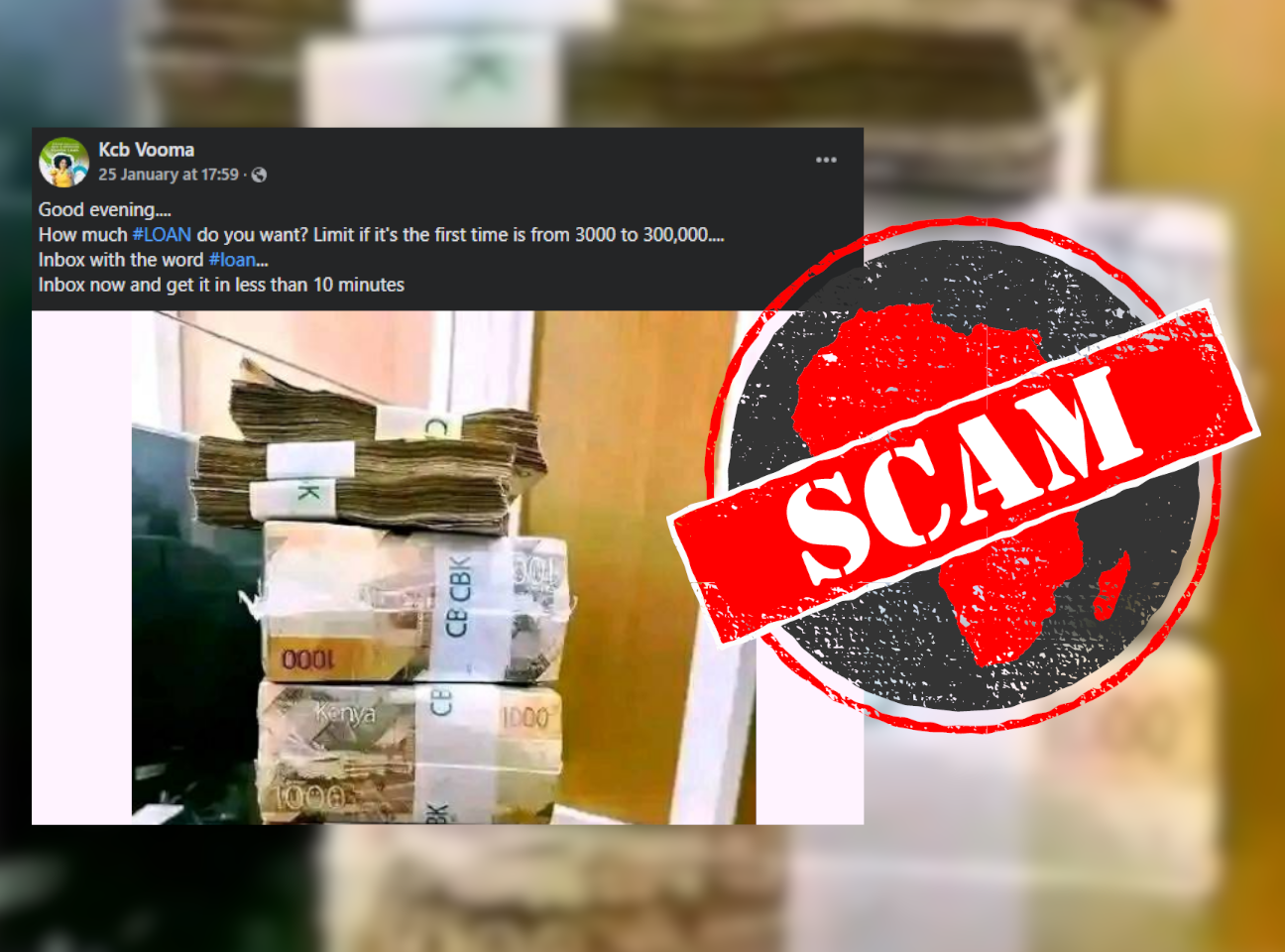IN SHORT: A Facebook account is advertising loans on behalf of Vooma, a mobile wallet service from a popular Kenyan bank. But beware, the account is run by scammers who want your hard-earned cash.
The Facebook account Kcb Vooma advertises itself to Kenyans as the best source of instant loans of up to KSh300,000 (about US$1,828).
KCB is a popular bank in Kenya and Vooma is its mobile wallet service. The service allows the bank's customers to pay for goods and services, take out loans and save money using their mobile phones.
The account also uses the bank’s logo. One of its posts, dated 25 January 2024, reads: “Good evening. How much #LOAN do you want? Limit if it's the first time is from 3000 to 300,000 … Inbox with the word #loan … Inbox now and get it in less than 10 minutes.”
The account posts its adverts on public Facebook groups, some of which have over 43,000 members. Its posts appear here, here, here, here, here, here, here, here, here and here.
But are they legit? We checked.

Signs of impostor account
Genuine financial institutions usually have an official website or app where customers can apply for a loan. The account in question does not link to any and asks users to apply via Facebook Messenger. This is a red flag.
The account has no posts on its timeline, but frequently posts to Facebook groups. It uses blurry images in its ads, and its posts are repetitive and poorly written. This is a sign that it is being run by an impostor.
We checked the bank's official Facebook page, which is verified, and found no such ads. They are also not on Vooma’s official Facebook page.
Vooma has asked customers to dial *844# or download its app to access all the services on the platform.
Offers of loans, giveaways and jobs on Facebook from fake accounts are often scams. Find out more in our guide to Facebook scams and how to spot them.
Republish our content for free
For publishers: what to do if your post is rated false
A fact-checker has rated your Facebook or Instagram post as “false”, “altered”, “partly false” or “missing context”. This could have serious consequences. What do you do?
Click on our guide for the steps you should follow.
Publishers guideAfrica Check teams up with Facebook
Africa Check is a partner in Meta's third-party fact-checking programme to help stop the spread of false information on social media.
The content we rate as “false” will be downgraded on Facebook and Instagram. This means fewer people will see it.
You can also help identify false information on Facebook. This guide explains how.




Add new comment